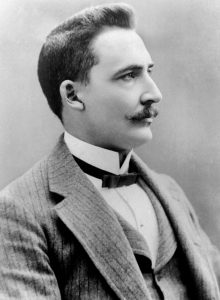Warren G. Harding, the twenty-ninth president of the United States is always at the bottom of the most effective president’s lists. Some historians put him in last place. His policies were questionable, his speeches uninspiring and he managed to appoint a slew of corrupt officials prompting the Teapot Dome bribery scandal. Did I mention his marital infidelity?

So how does someone like Warren Harding get elected?
In Blink by Malcolm Gladwell, the story of President Harding is used as an example of a thinking error. He calls it the “Warren Harding Effect.”
Harding was a likeable guy, had a deep voice and significant personal charm. As a young man he was quite handsome and as an elder, looked to be a distinguished statesman.
People who met him instantly liked him. For some reason they thought that would make him a good senator. Despite his dismal record in the senate, they thought he would make a good president.

Malcolm Gladwell says that when we are attracted to someone we easily make the mistake that they may have other talents. We mistake charisma for capabilities. We assume that if they’re likeable they’re capable.
This thinking error is quite widespread and worth considering in your own life. In the Science of Mind we believe that our thoughts are creative—that we draw to us the nature of our thinking.
That’s why it’s so important to make sure our thoughts are true and well considered. We can trust our instincts, but then we need to make sure we don’t apply our instinctual likes and dislikes into areas beyond their scope.
We shouldn’t pick an accountant because they’re likeable. We shouldn’t choose someone to live with because they have charisma.
Sometimes we will find a more complete truth with our outer eyes shut and our powers of discernment brought to bear.
